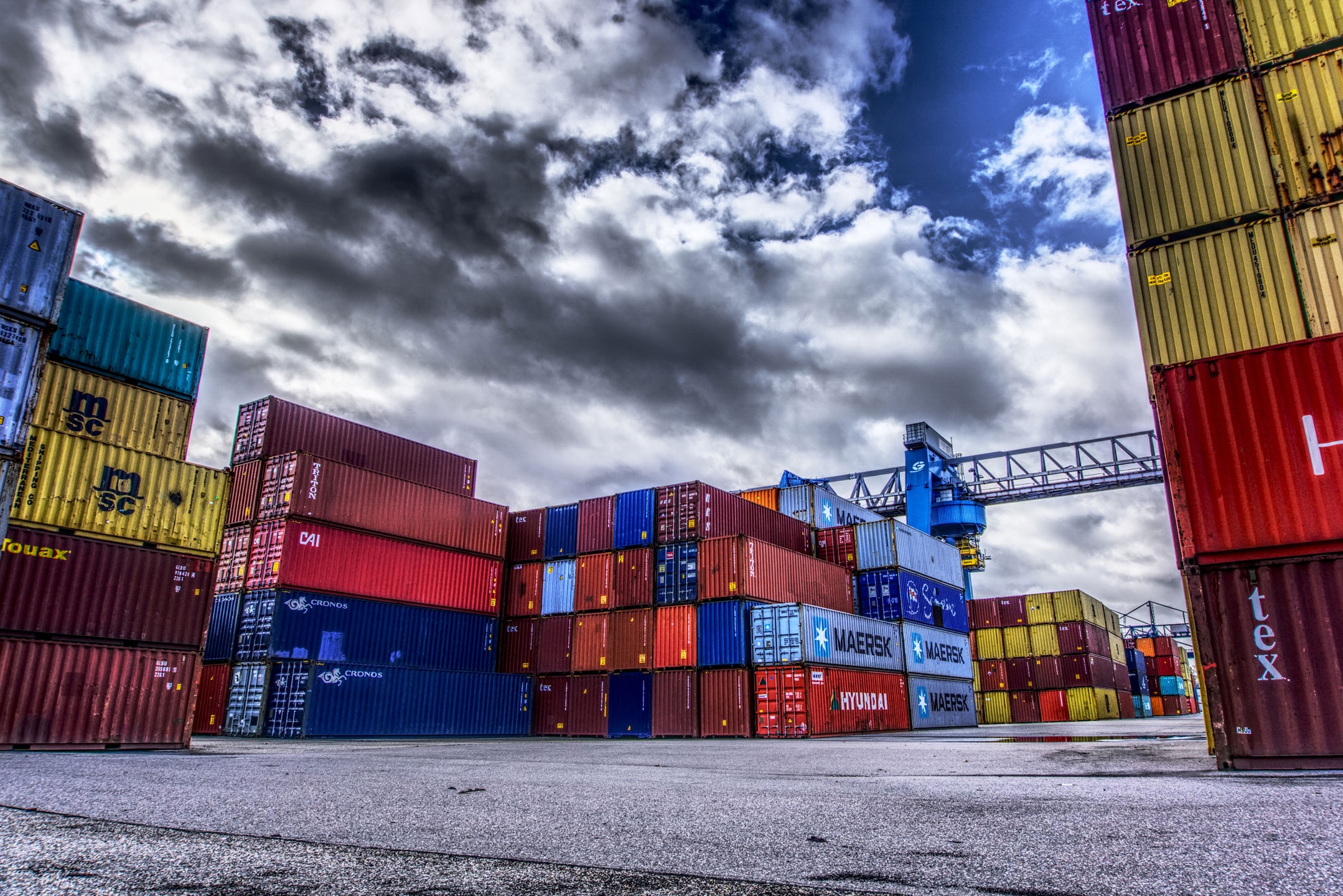– Introduction
Delay related claims are a significant part of the maritime cargo claims. In my previous role defending the interests of the carrier as well as in my current role acting on behalf of the cargo interests, I have had interesting discussions with the counter party on the cause of delay and the merits of claim. While the involved parties handle claims based on f.i. thermostatic fluctuations or an incident at the terminal smoothly (in general) in the amicable phase, there is much uncertainty about delay related loss (whether physical damage or economical loss is involved). The origin of this (legal/practical) uncertainty has multiple reasons, the main of which are:
(i) lack of regulation of delay related claims by Hague(Visby)Rules (hereafter H(V)R);
(ii) the terms and conditions clauses of the bill of lading, which are considered as the contract terms, rejecting or limiting the compensation to a minimum (mostly equal to the freight amount);
(iii) the lack of theoretical knowledge (by the claims handler of the carrier as well as the handler on behalf of the cargo interests) about delay as a cause of damage and the legal consequences of it.
In this article I will discuss marine cargo delays and analyse the claims which result from these delays from a legal perspective.
Delay
We all know the ordinary meaning of delay, but it is good to have the legal definition as well: “postponement of performance of some act or step beyond the point of time when the act or step should have been performed” (William Cable v. Trainor (1957)). For centuries, shipping has been an essential mode of transport for the international trade. Ages ago, there was delay in delivering the cargo as well and most probably more often than now because the vessels and the trip schedule depended heavily on the weather. It’s interesting to read the clauses of contracts back in those days, with (exoneration) clauses like wind and weather permitting or deo volente. Vessels still depend on the weather conditions for their performance, but less than they used to be because of the sophisticated equipment, their engine, the weather forecasts, the available data and so on. However, the international conventions and the case law (with precedence) regulating maritime claims partially date back to period when the motor vessels didn’t even exist (not to mention the “box ships” and the revolutionary containers). Therefore studying (the more) recent case law is essential to understand how to deal with a claim caused by delay, for instance.
Delay: primary or secondary cause of loss
A common mistake is to classify every loss that is the result of prolonged voyage as a “delay claim”. Delay can namely be the primary or the secondary cause of loss. Delay is the primary cause of loss when the master of the vessel sails at a slower speed or fails to leave the port on time. Delay is however the secondary cause of loss in case of the unseaworthiness of the vessel or a deviation of the schedule by the Master. In case the delay is the secondary cause of loss, delay is the effect of another -primary- cause such as unseaworthiness of the vessel: unseaworthiness causes delay and this prolongation causes the loss to the cargo.
It is essential to make a distinction between the delay being the primary or secondary cause of loss. The burden of responsibility in case of a delay as a primary cause of loss differs radically from that of the unseaworthiness of the vessel or the duty to carry and deliver the cargo safely. From the perspective of the carrier, it’s on his interest to focus on the delay itself rather than the unseaworthiness of the vessel as he can escape liability if he can prove that he has exercised due diligence in the conduct of the voyage. Therefore fact finding and a decent, sharp analyse of it before lodging a claim is important. Not only in the court case but also in the amicable phase: a great majority of the claims are solved amicably/out of court and therefore a decent formulation of the cause of loss starts in the amicable phase. As a wrong analyse can affect the outcome of the court case as well, especially the claiming party should be specific on the cause of damage.
The carrier is in principle liable for unjustified delay if the delay has caused loss. The carrier however can have the protection of the H(V)R if the act that caused the delay is beyond his power (congestion at the port and extreme weather are the most used exonerations). But even in that case the liability of the carrier can be involved, entirely or partially: due diligence should be examined in that case, to find out whether the carrier was (partially) negligent or not.
Due diligence
The carrier should exercise due diligence in performing the voyage. Not exercising due diligence means that the carrier is negligent. If negligence leads to delay, the carrier is liable for the consequences of that negligence. When delay beyond the control of the carrier is about to take place for which the liability of the carrier is in principle excluded according to the H(V)R (in case of congestion, strike and so on), the carrier should:
(i) inform the merchant about the delay. In consultation with the merchant, the carrier can deliver the cargo at a port/terminal nearby, which was also in the original schedule of the carrier;
(ii) care for the cargo during delay. As the voyage prolongs, so is the duty of care of the carrier;
(iii) overcome the delay. The carrier should take reasonable measures to overcome obstructions and deliver the cargo on time;
(iv) to resume and continue the voyage as soon as possible.
(An interesting read on this topic is the book of Max Ganado, Marine cargo delays)
Three main criteria to comply with are: a) foreseeability, b) due diligence and c) reasonability.
Ad a. If the carrier wishes to exclude liability for the loss which is resulted by delay because of congestion or strike at the port, extreme weather and so on, he should prove that these circumstances were unforeseen. Besides this, the delay should be in balance with the actual cause of the delay: if a typhoon near the coast of Japan lasts for 7-8 hours while the vessel arrives a week later than scheduled at a Japanese port, the carrier can’t just “hide” behind the typhoon and reject liability (not mentioning the foreseeability of the bad weather).
Ad b. I have described above that the carrier should exercise due diligence in case of delay. The onus of proof is on the carrier to prove that he exercised due diligence to avoid delay (and consequentially loss).
Ad c. The carrier is only expected to do what reasonably can be done in the circumstances to overcome the delay.
Exclusion of liability clauses
The terms and conditions which are applicable to the bills of lading issued by the carrier, have clauses like “the carrier can take the liberty to discharge the cargo at any port…”, “the carrier does not undertake that the cargo shall meet any particular market…”, “the carrier does not undertake that the cargo shall arrive at the port of discharge” and most relevant for the question of liability: “the carrier shall in no circumstances whatsoever be liable for direct, indirect or consequential loss or damage caused by delay…”. In other words: did your Christmas trees arrive on 5 January instead of 30 days earlier or was your container with pineapples from the Philippines discharged in Jebel Ali instead of Le Havre, you can’t blame the carrier for it.
Reading these terms and conditions, one could ask the question whether these clauses are in conflict with the H(V)R and thus whether they are invalid (as the H(V)R has a mandatory character). We have seen above that the carrier is in principle liable for unreasonable and unjustified delay. So, why these clauses in the terms and condition?
First of all, these liability-limiting/-excluding clauses are actually unnecessary as they can’t grant more rights to the carrier than the H(V)R already gives him. The court can, researching the circumstances of a specific case, limit the freedom of the carrier if the deviation was not reasonable. In other words: the carrier could deviate from the contract/original schedule without these clauses, purely referring to the H(V)R meaning that these clauses don’t have an added value.
Secondly, the H(V)R renders null and void any term which relieves the carrier of liability for negligence. These clauses in the terms and conditions are invalid in so far as they exempt the carrier from liability for negligent or unreasonable delay. In a landmark case from 1983 (General Electric Co. v. SS Nancy Lykes) the court had decided that the liberty to deviate-clauses are valid only in so far as they permit reasonable deviations.
Besides this, the carrier still negotiates with the cargo interests for an amicable settlement in case claims are lodged for loss as a result of delay. No matter what is stated in the terms and conditions.
Last but not least, there are many court cases and verdicts, some in favour of the carrier and some in favour of the cargo interests. The liberty to deviate-clauses help the carrier in so far that the claims handler of the carrier refers to these clauses and reject the claim, after which the cargo interests sometimes drop the claim.
Conclusion
In case of claims for loss caused by delay, the involved parties should find out the primary cause of damage. Once that is done -and if the cause is delay for the purpose of this article- the responsibility regime of delay should be examined, independent of the liability-excluding clauses of the terms and conditions of the bill of lading. If the delay is not justifiable, the carrier is liable for the consequences of the negligence. If the carrier however is of the opinion that the act that caused the delay was beyond his responsibility, the carrier should prove that this act was not foreseeable and he has exercised due diligence. Reasonability is the key word in examining foreseeability, due diligence and what can be expected by a carrier.
Our firm represents cargo interests (cargo underwriters/brokers as well as Merchants who are not insured) with their claims against ocean carriers. You can contact us if you have any question related to the topic of this article or if you have any question about claims in general. We are specialized in claim handling and recovery and we handle claims from A to Z. Besides this, we also give trainings to companies in claim management and debt collection. Feel free to contact us for more information.
About the author

Nurlan Agayev
LLM


